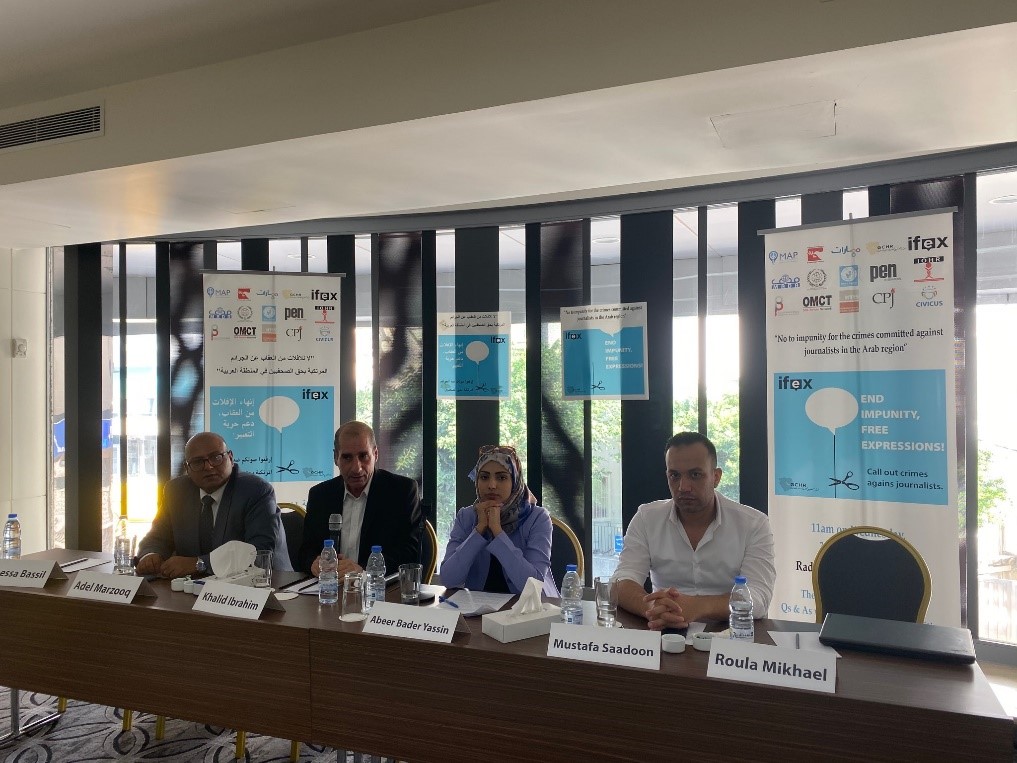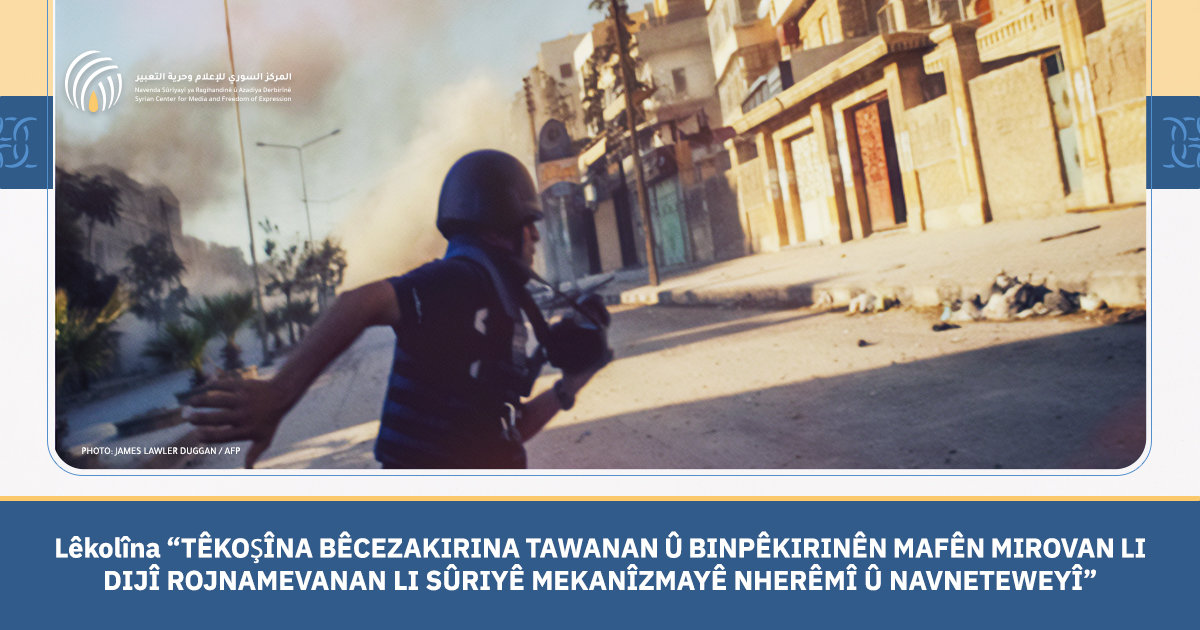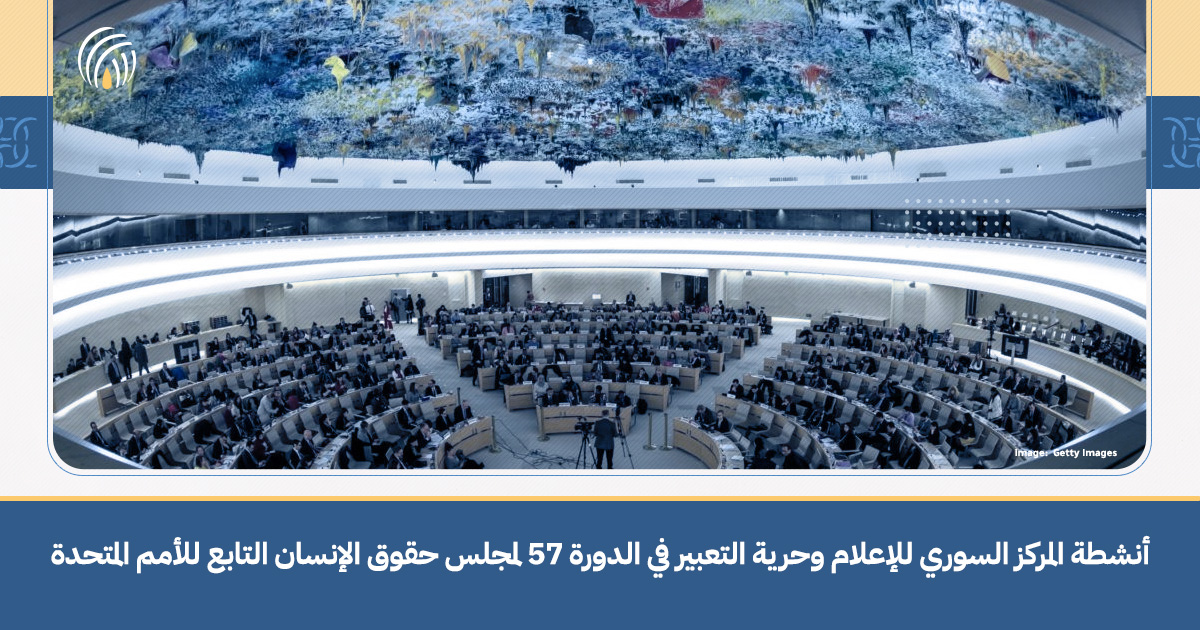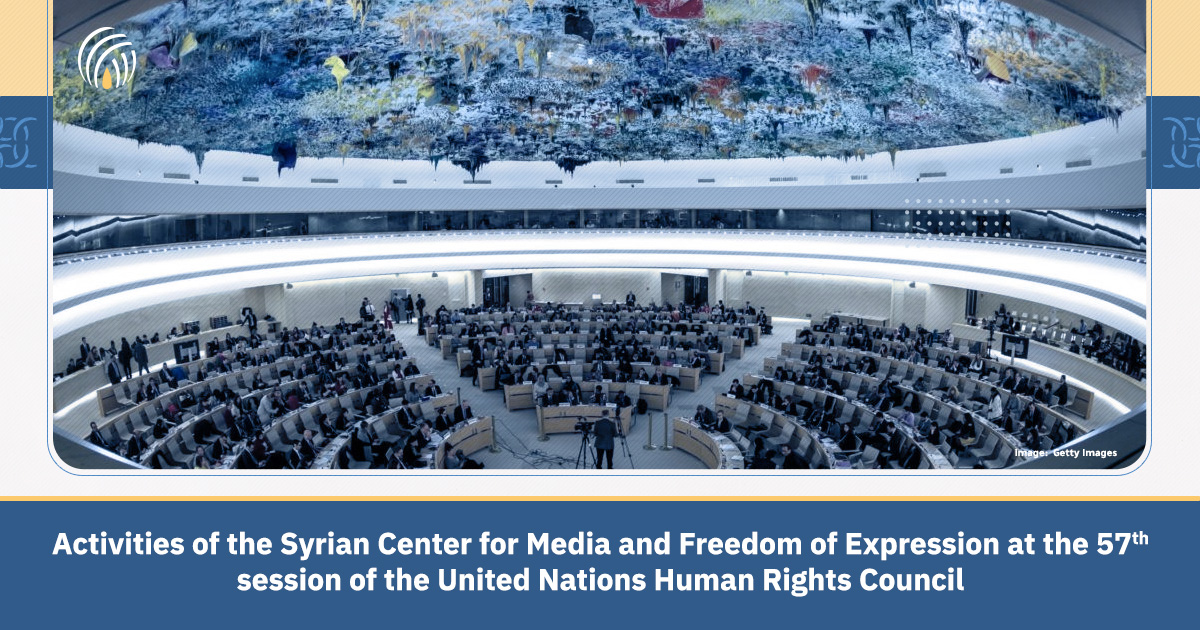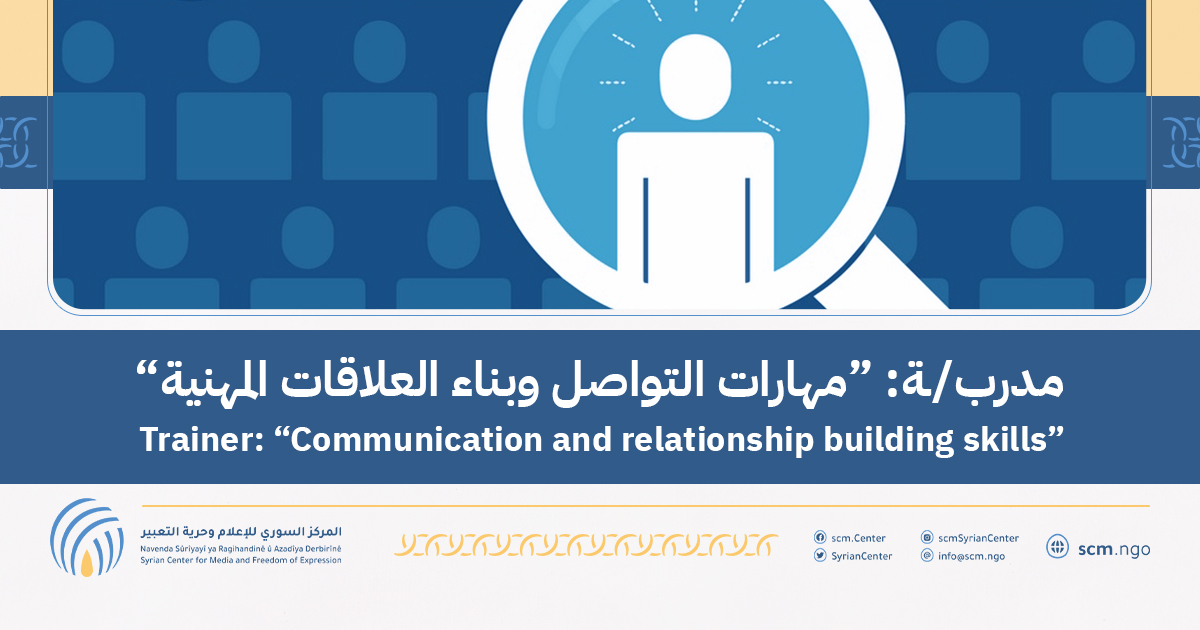Beirut – To mark the 6th International Day to End Impunity for Crimes against Journalists, on 02 November 2019, which was approved by the General Assembly of the United Nations at its 68th session in 2013, 18 NGOs called for immediate actions at the conclusion of an event in Beirut entitled “No to impunity for the crimes committed against journalists in the Arab region.”
The sponsoring NGOs are the Americans for Democracy & Human Rights in Bahrain (ADHRB), Bahrain Center for Human Rights (BCHR), Bahrain Press Association (BPA), CIVICUS, Committee to Protect Journalists (CPJ), Development Refqan Organisation in Yemen, Gulf Centre for Human Rights (GCHR), IFEX, International Media Support (IMS), Iraqi Observatory for Human Rights (IOHR), Maharat Foundation, Media Association for Peace (MAP), Metro Center for Journalists’ Rights and Advocacy, Palestinian Center for Development and Media Freedoms (MADA), PEN International, Syrian Center for Media and Freedom of Expression (SCM), Syrian League for Citizenship, and the World organisation Against Torture (OMCT).
The event included a seminar which was moderated by Khalid Ibrahim from GCHR in addition to speakers Adel Marzooq from BPA, Abeer Bader Yassin, an independent journalist from Yemen, and Mustafa Saadoon from the IOHR. Two speakers, Roula Mikhael of Maharat and Vanessa Bassil of MAP were unable to attend due to the closure of some roads as a result of popular protests in Lebanon.
Marzooq talked about the massive violations that have been committed against journalists in Bahrain by authorities and the fact that after the closure of the only independent newspaper in the country “Al-Wasat” there is no space left for journalists to publish their views freely. He added that the government is using the Cyber Crimes law to target online activism. Marzooq called on the international community to act immediately and provide support for at-risk journalists and put more pressure on repressive governments to respect freedom of the press.
Yassin talked about the situation of journalists in Yemen, describing it as a tragic reality in one of the most dangerous countries to live and work as a journalist, which has resulted in many independent journalists fleeing outside the country. She added that the international community and its organisations did not provide the required protection to journalists in order to dispel the fear of violations against them, so there must be firm and strong mechanisms regarding crimes committed against the media, otherwise it is no wonder that they remain targeted and exposed to the risk, and that the voice of truth remains silent.
Saadoon said that since the beginning of the popular protests in Iraq on 01 October 2019, journalists have experienced difficult situations, there are many threats from authorities or groups loyal to them, and there are dozens of journalists who left Baghdad for the Kurdistan region of Iraq as well as Beirut, Istanbul, and Amman. He added that the international community falls short on supporting Iraqi journalists and enhancing their protection and should reconsider typical mechanisms of supporting civil society organisations as well as journalists.
A photo exhibition was also organised to mark the International Day to End Impunity, in order to shed light on journalists in the Arab region who have been killed or disappeared in the past years, including in Palestine, Libya, Egypt, Bahrain, Syria, Iraq, Yemen, Lebanon, and Saudi Arabia.
The events aimed to draw attention to the serious risks faced by journalists as they do their peaceful work in these nine countries and other countries in the Middle East and North Africa, in addition to raising voices to demand the strengthening of protection and security for journalists, an essential requirement. This includes journalists and professionals working in various media outlets in war and conflict zones as well as those carrying out their work during times of peace.
Recommendations:
Following up on recommendations made during events organised by GCHR with partners including UNESCO to mark the occasion of the International Day to End Impunity for Crimes against Journalists on 02 November 2018, and at GCHR’s Gulf Platform for Human Rights Defenders in the MENA region in January 2019, GCHR calls for immediate action and:
- Calls on all concerned institutions to take note that most of the murders and other criminal violations committed against journalists and human rights defenders by government agencies or extremist militias have been carried out by unknown persons yet to be identified;
- Urges an immediate and serious investigation in order to find practical and effective mechanisms that decisively end impunity in crimes against journalists in all countries in our region;
- Urges governments and other relevant agencies work strenuously to hold accountable those who committed crimes against journalists and that perpetrators (and masterminds) of these violations will not remain unidentified and escape impunity;
- Calls on all concerned parties provide proper protection to journalists in MENA countries and beyond so that they can carry out their work to the fullest extent;
- Calls on all countries in the MENA region to adopt the recommendations of the UN Plan of Action on the Safety of Journalists and the Issue of Impunity.
For more information, please read GCHR’s report on impunity available at:
